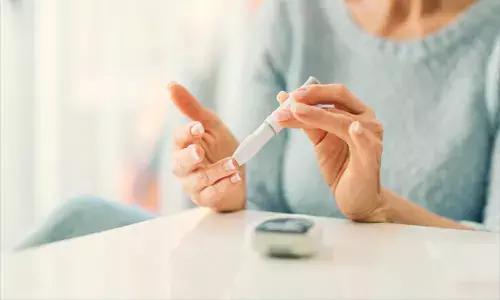Exercise At High Altitude Could Increase Hypoglycemia Risk In People With Diabetes
- byDoctor News Daily Team
- 20 July, 2025
- 0 Comments
- 0 Mins

WASHINGTON-People with diabetes may need to monitor their blood sugar more closely when doing high-altitude activities such as hiking or skiing, according to a small study published in the Society's Journal of Clinical Endocrinology & Metabolism.
Doctor's, often recommend exercise for people with diabetes as it has many benefits. It can improve heart health, insulin sensitivity and quality of life. However, exercise can also cause hypoglycemia (dangerously low blood sugar) in people with diabetes during and after a workout. If a person's blood sugar drops really low, quick action is needed as they can have seizures, become unconscious or die.
"These findings suggest that exercise performed shortly after exposure to high altitude may increase the risk of exercise-mediated hypoglycemia," said Cory Dugan, A.F.H.E.A., B.Sc. (Hons), of the University of Western Australia in Crawley, Australia. "We ask that future guidelines consider these findings to increase the safety of people with type 1 diabetes when travelling from low to high altitude areas like the mountains without any acclimatization."
The researchers studied seven people with type 1 diabetes and measured their blood sugar levels before, during and after two indoor cycling sessions that mimicked sea level and high-altitude conditions. After one hour of exercise at 4200 meters (about half the height of Mount Everest) and during recovery, blood sugar levels were significantly lower. These findings suggest exercise at high altitude may increase the risk of hypoglycemia in individuals with type 1 diabetes.
Other authors of the study include: Shane Maloney, Kristina Abramoff and Sohan Panag of the University of Western Australia; Elizabeth Davis and Timothy Jones of the Telethon Kids Institute in Nedlands, Western Australia; and Paul Fournier of the University of Western Australia and the Telethon Kids Institute.
https://academic.oup.com/jcem/advance-article-abstract/doi/10.1210/clinem/dgab881/6464716?redirectedFrom=fulltext
Disclaimer: This website is designed for healthcare professionals and serves solely for informational purposes.
The content provided should not be interpreted as medical advice, diagnosis, treatment recommendations, prescriptions, or endorsements of specific medical practices. It is not a replacement for professional medical consultation or the expertise of a licensed healthcare provider.
Given the ever-evolving nature of medical science, we strive to keep our information accurate and up to date. However, we do not guarantee the completeness or accuracy of the content.
If you come across any inconsistencies, please reach out to us at
admin@doctornewsdaily.com.
We do not support or endorse medical opinions, treatments, or recommendations that contradict the advice of qualified healthcare professionals.
By using this website, you agree to our
Terms of Use,
Privacy Policy, and
Advertisement Policy.
For further details, please review our
Full Disclaimer.
Tags:
Recent News
Private medical college moves Bombay HC seeking in...
- 07 November, 2025
Doctors move Health Ministry, MCC over procedural...
- 07 November, 2025
PG Medical Admissions 2025 registration begin in U...
- 07 November, 2025
NEET PG 2025 Counselling: Reopen registration port...
- 07 November, 2025
Daily Newsletter
Get all the top stories from Blogs to keep track.


0 Comments
Post a comment
No comments yet. Be the first to comment!